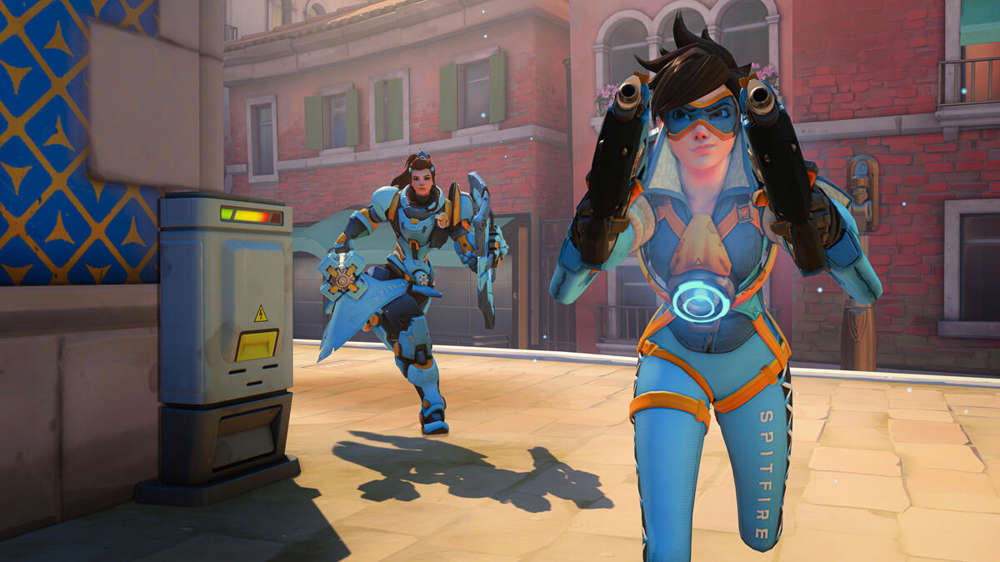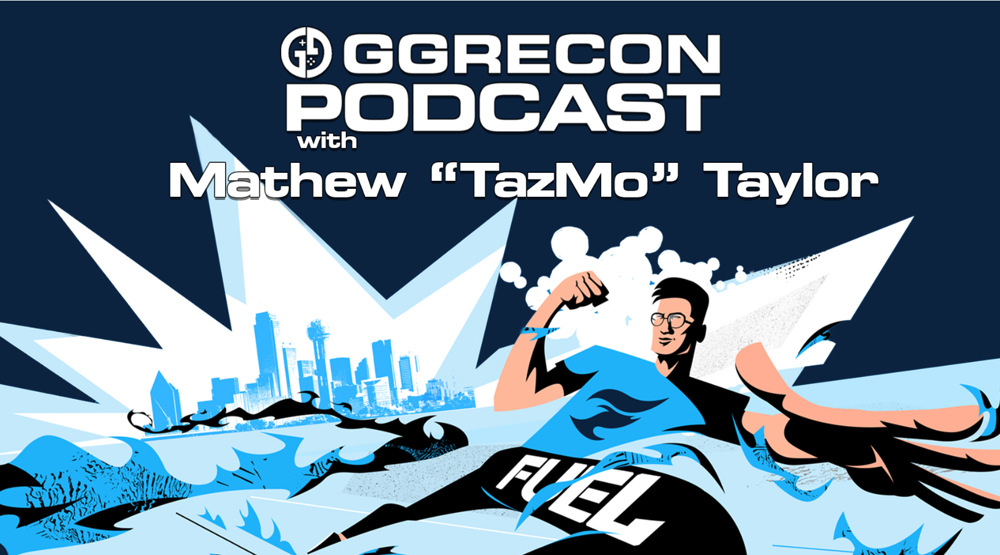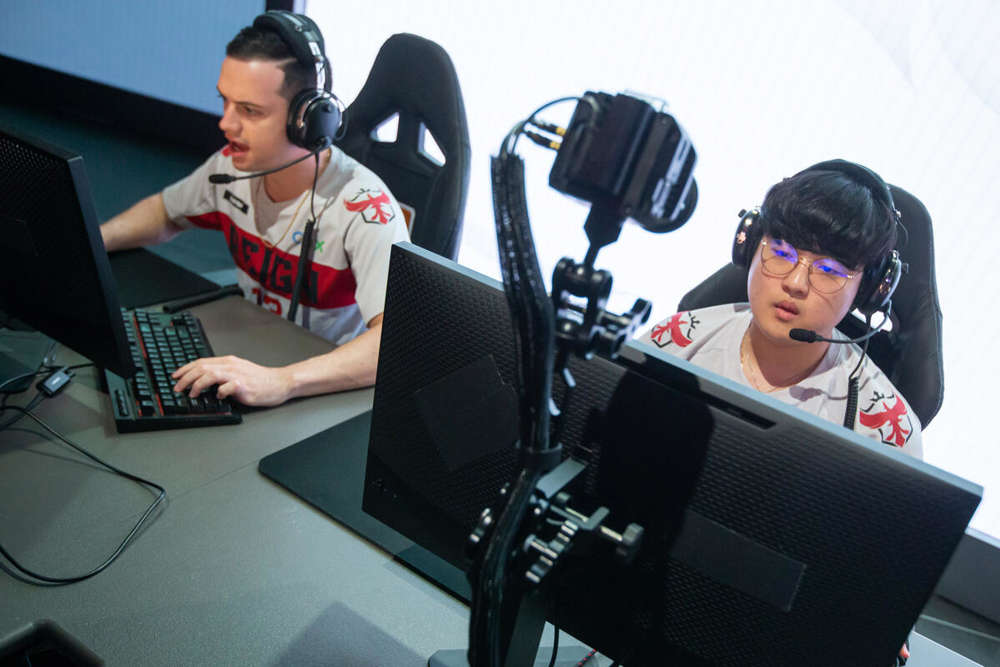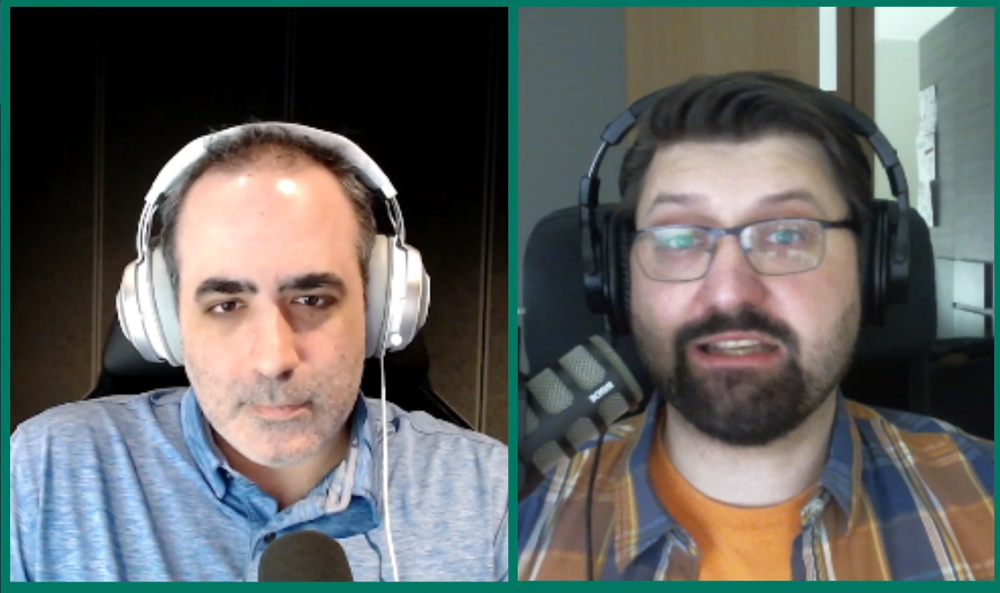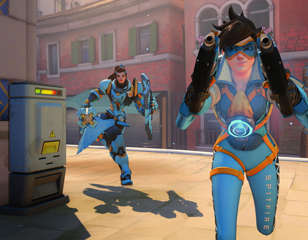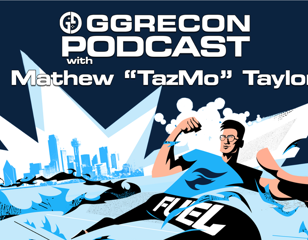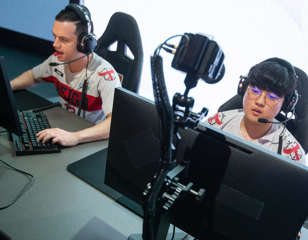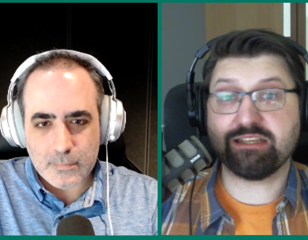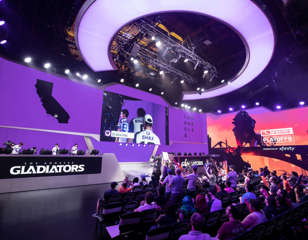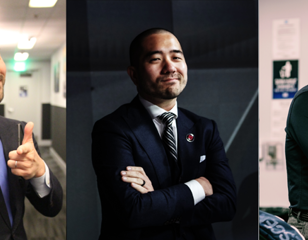Interview With Jaesun Won On Player's Unions, Burnout, Salary Inflation And More
In this interview with GGRecon, he shared his views on his experience as a GM in Overwatch League, burnout and mental health, salaries in the esports ecosystem, player’s unions and more.
21st Sep 2020 18:07
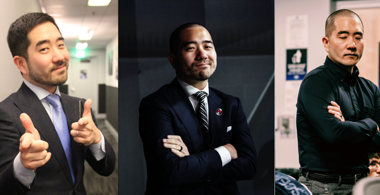
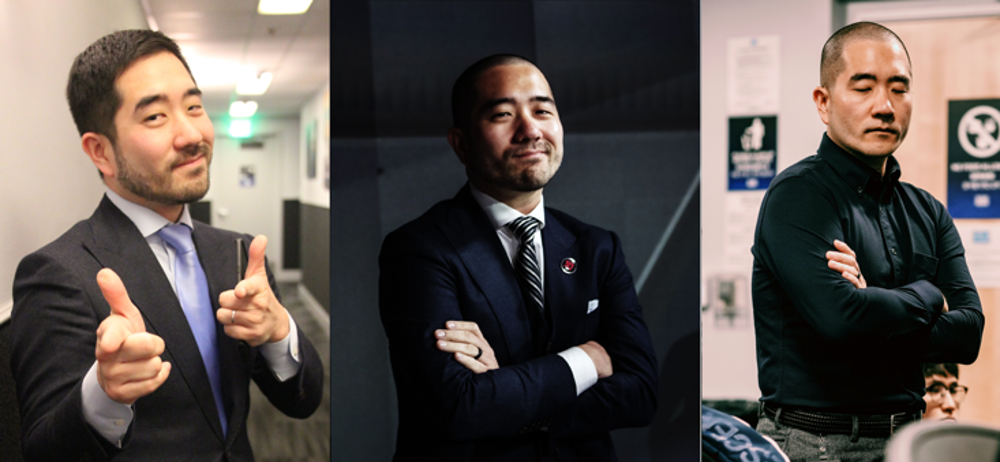
Interview With Jaesun Won On Player's Unions, Burnout, Salary Inflation And More
In this interview with GGRecon, he shared his views on his experience as a GM in Overwatch League, burnout and mental health, salaries in the esports ecosystem, player’s unions and more.
21st Sep 2020 18:07
U. S. Army veteran Jaesun Won has been in esports for several years, formerly as general manager of the Toronto Defiant, and since last week, as a player agent and partnership lead for SEG esports. In this interview with GGRecon, he shared his views on his experience as a GM in Overwatch League, burnout and mental health, salaries in the esports ecosystem, player’s unions and more.
The interview was edited for clarity and brevity. The full video with additional topics about what’s it like being a management professional and a father in esports is available below.
The timing of this interview is interesting because mere hours ago your new role was announced. You almost got away from esports. What made you go back?
It’s hard to explain. After I announced my retirement, I did get approached by a couple of interested parties. Some of the interested were agencies, and for a couple of weeks now I did mull it over. I think being an agent was probably one of the few career paths that had interested me in the past. I think this is kind of a nuanced question. We kinda go back to the fact that when you are a general manager - you kind of balance two things. You balance your players and staff, along with the interest of the organisation you work for. In the end, because you are the general manager and you work for the org, you have to weigh out their interests more. That’s just how it goes.
Now though, as a player-manager, I fight the interest of the players and staff first. That’s where my primary interests lie. And I have to admit that this appeased me way more. I have nothing against orgs, don’t get me wrong. I worked with within an org for nearly seven years. I worked with many colleagues in other orgs, I have no issues with orgs in general. But I always enjoyed fighting for the interests of players and my staff. I feel like they come first in my heart and I’ve always cared for their well-being. I think that this is a better fit for me overall.
What’s it like to be a general manager of an Overwatch League team. Of course, this is probably a very subjective question, because not every general manager has the same responsibilities - but what was it like for you?
I’d say it’s very stressful. It’s a lot of work. Obviously, it’s very subjective. Every GM has different responsibilities. Every org looks at their GM for different things. Some GMs are like traditional sports GMs, where they have incredible say in their team roster. They have a lot of responsibility saying who is going to be on their team. For other teams, their GMs are more administrative. They do a lot of logistics and admin and what not. I would say I was a combination. Not too involved in one or the other, but I did a lot of both. It was very much a stressful time, especially because we had just launched our franchise.
It’s not the easiest thing to be a GM of an Overwatch League team. None of them will say it’s an easy job. It’s very much a thankless job because you get very little credit and all the blame. You do get a lot of blame.
If you care about the job, it can be very rewarding. I cared a lot about my players and staff and their well-being. It would bother me that it would be so stressful because I would watch the game and it would be very stressful to watch. I knew I couldn’t affect the outcome of the game. How the team played or did if they won or lost...I didn’t want to watch the game.
Why did you decide to retire when you cared about certain aspects of your job so much?
I had been thinking about leaving for a while and it’s not so much leaving esports but more leaving the management of a team. Mainly because I felt that the stress had gotten to me. I was working probably on average 60-80 hours a week. That I don’t put on anyone but myself, because I should be able to cut myself off after a certain time. I think I didn’t manage my own time too much or too well. I overworked myself way too much. I would try to figure out ways to fix things. I would overthink situations too much and tried to deal with things that were generally out of my control and it was probably an unhealthy way to think things. It probably affected a lot of people to deal with COVID-19. I was in Toronto, my wife and the rest of my family live in New York City and I was separated. It wasn’t the ideal situation. I didn’t have free time for myself and I didn’t make time for others. I wasn’t taking care of myself and I wasn’t being healthy. I wasn’t sleeping well. I think I was pretty depressed. Mentally I was very drained all the time.
It didn’t also help that I was stressed out all time because the team also did very poorly. I’m not going to sugar coat it, the Defiant at a certain point… We started very strong but then we had a very rough season overall. We finished [17th] out of 20. They did pretty admirably in the end at the playoffs. They had a pretty strong showing against the Gladiators at the end but overall the team didn’t do as well as we would’ve liked them to do. I think it was a rough season for everyone. Obviously I retired, Felix ["Féfé" Münch], [Kristian "Kellex" Keller] retired. Three retirements on the team in a row, it is rough on everyone because not only were we retiring, but each of our retirements affected everyone who as still there on the team as well.
Retirements were very concentrated on your team, but also other teams had a lot of retirements. It suggests that something within the season was maybe special, that it would have caused a lot of burnout or at least not wanting to continue further on. From your point of view, do you think there are any systemic things standing out? Is it just COVID-19 that put a lot of strain on that system?
I’m not saying that CS:GO is not a major game, I don’t consider it a major franchise because it’s not under a franchise system, but I think out of the three major franchise leagues which are obviously League of Legends, Overwatch and Call of Duty, Overwatch League has the most difficult schedule. It got the highest up-tempo, it’s got constant games. The stages are pretty much non-stop. It’s got very little breaks in between. It’s got patches they throw at you along with the Hero Pools.
So Hero Pools got added this season. Last season was already difficult. Last season we had burnout but we were in one location. We had burnout in one location without Hero Pools. Now you add this season, where we are moving around and then we stop moving around but then we had to deal with a pandemic and then we had the addition of Hero Pools. We had a season where we had burnout and then we had another season where we had worse conditions so, in my opinion, it was definitely going to worsen.
I think that it’s not so much that the League has to make the schedule easier, I think each team has to look at itself and make sure that there’s either going to be a good work-life environment and to also make sure that there are good mental health coaches on the team. I always stress that. I think either sports psychologist or just mental wellness needs to be emphasised in each team because I have seen just way too much burn in my two years in the Overwatch League and in esports in general. I think it’s a problem across the entire ecosystem and it just needs to be addressed and I think it’s not addressed enough.
Do you think that’s something the league could look forward to doing, make a sports psychologist or mental health professional mandatory?
Personally I think remote… obviously, in a pandemic, remote [help] is one of those things but I think interaction one on one is probably way more valuable than people realise and I think, having someone focused for your team is very valuable. I think having a mental health professional or a sports psychologist that deals with multiple teams is not ideal. I think each team should get their own. Someone that knows the players, someone that gets to actually develop a relationship with every player because I think that relationship is valuable. You grow with the player. I think when you just have too many players that you interact with I think that is not the same.
Now that you’re outside the team, is there any issue you saw in the Overwatch space in your general manager position that you think you could work towards as a player agent?
Yeah, I think so. I think one of the interesting things I can help with is fixing the relationships between agents and orgs. I think generally a lot of orgs and a lot of my fellow GM colleagues have a tendency to see agents as the enemy and I hope to help repair that bridge.
What are you trying to do at the end? You are trying to look after the player, right? Both the GM and the agent should care about the player, right? At the same time, the agent should be looking after the player’s interest and so should the GM. They should come up with an equitable way to do that doesn’t screw over the organisation that the GM works for and works within their budget but at the same time doesn’t undervalue the player. It’s to make sure that the player gets what they are worth. There are a lot of times where agents overblow their player’s value.
You just make sure what the player is worth, make sure that he’s taken care of and make sure that you work with the org at the same time to make sure that it’s an equitable value for everyone. Make sure it’s fair for a sustainable environment for the ecosystem as well. You want to create a sustainable environment, right? You want to make sure that esports lasts for a long time. When you inflate the ecosystem, when you make it so that salaries are being inflated everywhere that’s not good for the ecosystem, right? That’s how you create bubbles. You create bubbles that are unsustainable. That’s why you have orgs dropping out because they realise they can’t keep sustaining this because they can’t get sponsorship and can’t keep money and funding to keep running this way because they have the salaries and budgets that are just spiralling out of control.
You want to make sure, as agents that you understand the business side where orgs are coming from. You have to make sure orgs understand what the market value of their player is. Don’t undervalue my player. You know this player has a lot of value! You know his age, he’s going to have a long history in this game. You know what he has to offer, how coachable he is, what his mechanics are. There are a lot of things that are involved, it’s a nuanced thing. It’s not black and white. I think this isn’t a thing that doesn’t get talked about enough but I think it’s something that’s valuable.
I think how roster creation is, I don’t think the general public understands. People just think “throw money at the problem!” Throwing money at the problem is not a solution. Roster creation is a very nuanced thing. Copying what other teams do doesn’t necessarily work for another team. Everything is shades of grey, it’s not as black and white as people think. Each team has to be approached very differently. That’s one of the things I hope to fix as an agent.
Is salary inflation less of a problem in Overwatch than in other esports?
I would say it’s a bit less compared to say… yeah definitely less than League of Legends and then it probably is among the least inflated. When it comes to League of Legends it’s really only inflated in one or two regions. I would say North America and LPL.
For Overwatch League, it’s not so much that it can get inflated. Sometimes you get individual orgs that will just throw their weight around and I’m not saying that’s necessarily a bad thing. Do you have a large budget and you want to win? Just New York Yankee’s the hell out of it. “I’m just going to throw this money in. I want to win a championship. Let’s just get all the top players we can.” There’s nothing wrong with that. You also have to look at what all the other teams are doing. You just took everyone’s budget and you just tripled it.
I don’t know if that’s necessarily a great thing to do and that it is why I personally think maybe having transparency when it comes to player salaries is important. I think the pros outweigh the cons. There are obviously some cons to knowing each other’s salary, especially in the same team. There is going to be some negativity involved when a player knows that he’s getting paid a lot less than his teammate. Say, when you are on a team and you get paid like 50k less than your teammate but you are performing way more, wouldn’t that bother you?
I think overall player [salary] transparency is just overall better for everyone involved. I think it allows for accountability in general.
Do you think there is a thread of the public knowing these values and therefore applying pressure to the players as well and that getting to the player? Whose responsibility is that to not have that on the player?
It’s obviously going to add pressure on the player. It’s up to the agent of the player, it’s on the staff… the players should have a support structure around them, right? I think a lot of orgs don’t have enough support structure around their guys, but they should. [As a player] there are a lot of ways to look for help. They don’t feel like their team is there to look out for them but it’s up to the org and the player. For a lot of these teams, the head coach will shoulder the burden. They will go out there and when their team loses, they will go out there and say “That’s not my players fault. That is all on me.” They will just take all the flag from the fans because they know that their players feel a lot of heat and so they try to take as much of the flag as possible, a lot of the nasty comments that will show up from the fans of the internet.
I always tell players: “If you lose a match, don’t go on social media.” It’s the worst thing you could do is go on Reddit or Twitter right after you lose a match - that’s the worst time. I tell fans: “Please don’t DM death threats to a player after they lose.” Why? Really?
Did you ever have to prevent a player from using social media because of those issues?
I have recommended players to stay off social media after some losses. You would see some players try and they’d be okay and then you’d see them really unhappy and then you realise that they couldn’t help themselves and looked.
I had my fellow GMs do the same. I sat with them after a loss: “Hey look, I’m looking at the thread. It says they should fire GM” I’m like “Why are you reading Reddit right now after your loss? That’s a terrible thing to do.”
The contract structure has changed for the next season [allowing teams to sign players for a much shorter time]. A lot of optionality in those contracts went to organisations, meaning that now you can sign shorter contracts with the org deciding if they want to extend after a certain amount of time. Of course, the reason for those changes are also apparent with being some players being in their contracts for a long time, probably longer than desired [by the organisation]. On the other hand, this does take some leverage and security away from the players. How have you received that change?
There are two ways to look at it. This is not a player-favoured change, this definitely an org-favoured change. I would say that there were a lot of situations in which organisations felt that they couldn’t make proper changes because they felt that they were stuck in place because of guaranteed contracts. They couldn’t make any moves and this happened for three full seasons. You just saw with so many players on the bench and they were just like: “I can’t do anything. My team is just stuck.” That sucks for the org, right? They can’t make changes. From a budget perspective, this is really rough. When it comes to Overwatch League teams, yes, they have some really high-stakes owners, but the budgets of Overwatch League teams are a lot more modest.
Budgets for esports orgs are a lot more modest than in traditional sports. So you have to take that in mind that you don’t just have those massive budgets to just throw around like you have in the NFL or in the NBA. The business side has to prevail when it comes to a lot of these decisions. I very much understand where this mentality is coming from, where a team would sit there and be stuck because they have used up the entire budget for the year. You are given a budget and you think: “What can I do? My team is not doing well but I have to make these changes and I can’t sell this player. Nobody wants him. I’ve tried and I’m not going to get anything in exchange. Trade windows are closing.” They look to the next season and they’re like:” The only change we can come up with we can’t make these contracts full season. This is kind of ridiculous!”
They’ve changed that and I understand the reasoning. This also allows it to be flexible where some players will want some security so they can actually negotiate for longer security for less money, so it’s kind of like a give and take. It does suck for new players coming in, because the players that have been in for three seasons got to enjoy all this security. All the new talent coming to the Overwatch League and Call of Duty League do not get the security anymore. I do feel bad for all the Contenders players, all the new players. They want to come into these leagues, wanting to be secured because not everyone is coming with being able to give up on not going to school, give up on not getting a job, being able to say “You know what? I am just going to take a hiatus from that and go into esports!”
It’s a give and take, especially now that the Overwatch League and the CDL are looking at everything ecosystem post-COVID. We have to see how everything finances. Everything changed because of the pandemic. People assumed because everyone is going to be indoors, that this is an amazing time for esports. Yes, viewership has gone up. This doesn’t mean money has gone up. This doesn’t equate to the same thing as money. When viewership goes up, doesn’t mean sponsor money is the same. Sponsors themselves are struggling because they don’t have the same money coming in because these sponsors also are struggling because a lot of them rely on other things. They don’t have time to throw money into esports right now. The revenues streams aren’t the same. There are so many layoffs and so many cost-cutting mechanics going into place. People have to be cognizant, it’s a very different environment right now.
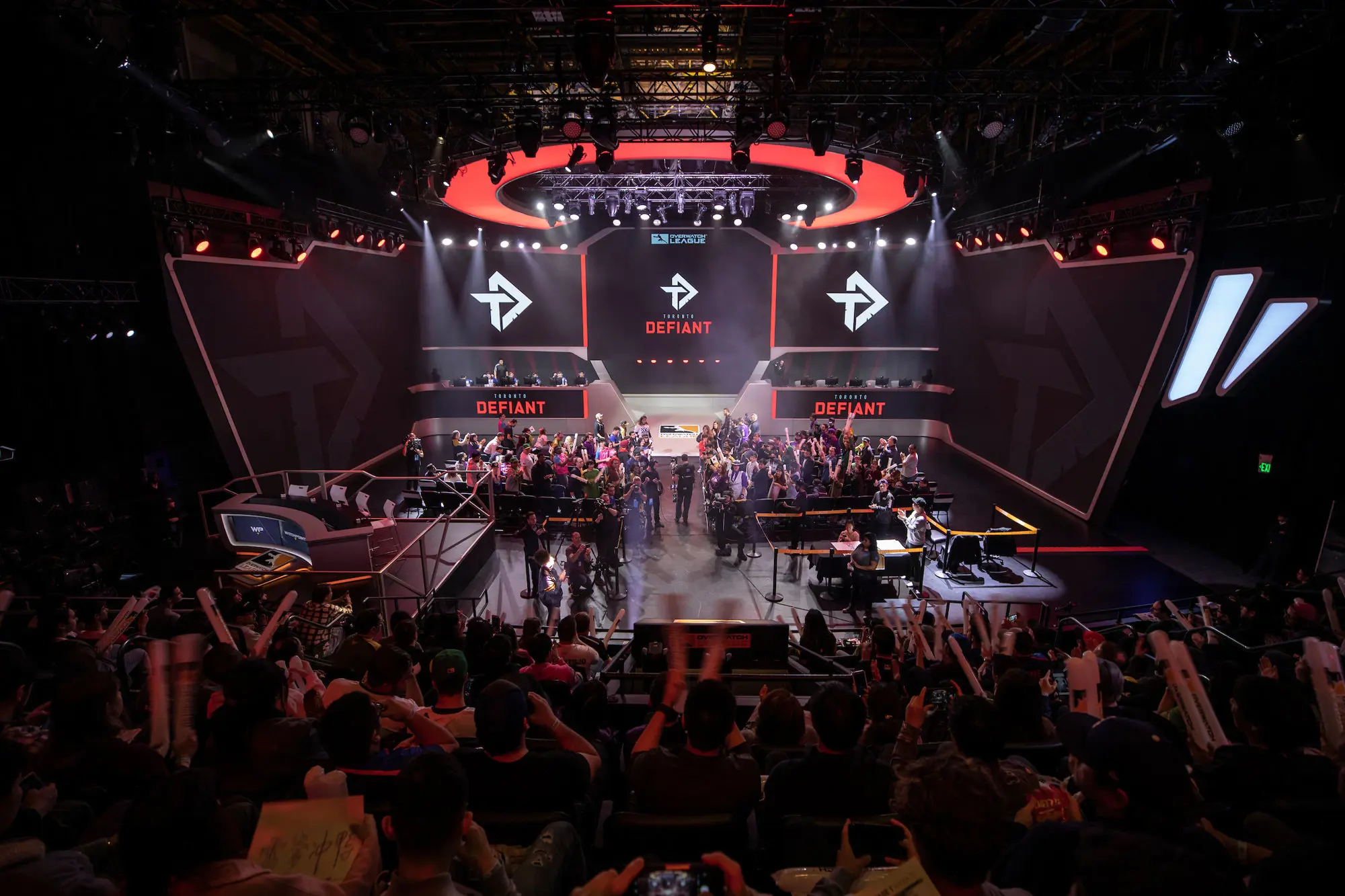 Blizzard Entertainment
Blizzard Entertainment
Even though that there good reasons as to why these changes might be going forward, the frequently asked question is for players to have a player’s union. What are your thoughts on this topic?
I think all unions are good. Labour unions? I think they are good as long as they are not abused. I think labour unions, in general, are an effective tool. It’s been shot down constantly. There aren’t many player unions who are effective. There’s a CS:GO player union, isn’t there? I don’t think there’s one effectively right now outside of CS:GO.
I think there is something like that structure in League of Legends, even though it is, I believe, Riot-organised.
Something that is publisher organised? I think a union would be good to have, or at least someone to have a voice. Even something similar to what Riot does - Get the player’s voice on the table in these conversations. Because right now in all these conversations it’s orgs plus the league but if you add a third voice, I think that’s important. It should be the orgs, the league and then representatives of the players. Even if the league runs the player’s union, but the players get to vote on their representatives. These guys actually get to voice their opinions of the players. I think that’s important to do.
It’s also interesting to see that because of the size of the individual player brand, I think the dynamic is a little bit different between CDL and Overwatch League. If you disgruntle someone like [Seth "Scump" Abner] you now have 2.1 million Twitter followers against you while you when you disgruntle someone like it might just be 10k. So the leverage of these two professional is very different. Do you think this should be considered when getting some sort of group organised going for the Overwatch League?
I think so. Personally I think when they do a player union, because the structure of the leagues are kind of similar because inherently the league’s parent companies are the same possibly the player’s unions could be the same. Just get representatives from both leagues and just have them talk to the parent company themselves. A lot of the ideas are the same. Maybe they don’t need to be in the same meetings but it could be a generalised player’s union that gets to sit at the table at least to talk and have a voice. Being able to have a voice is very important.
You can follow Jaesun Won on his Twitter @jaeSW.
Images via Blizzard Entertainment

About The Author
Sascha Heinisch
Sascha "Yiska" Heinisch is a Senior Esports Journalist at GGRecon. He's been creating content in esports for over 10 years, starting with Warcraft 3.
Related
More Like This
TazMo: ''This Team Had Come In And Done So Much For Us. We Can’t Back Down On These Guys''
In this interview with GGRecon, TazMo reflects on the experiences as we discuss the events and happenings during the early stages of Overwatch esports, talking about topics like taking in the highest
257 weeks ago
Gladiators GM Brenda Suh On Roster Building, Moving Forward With Dpei and More
In this interview with GGRecon, newly appointed General Manager Brenda Suh talks about her journey, the decision-making process going into last and next season, and why they decided to move forward with Dpei.
275 weeks ago
